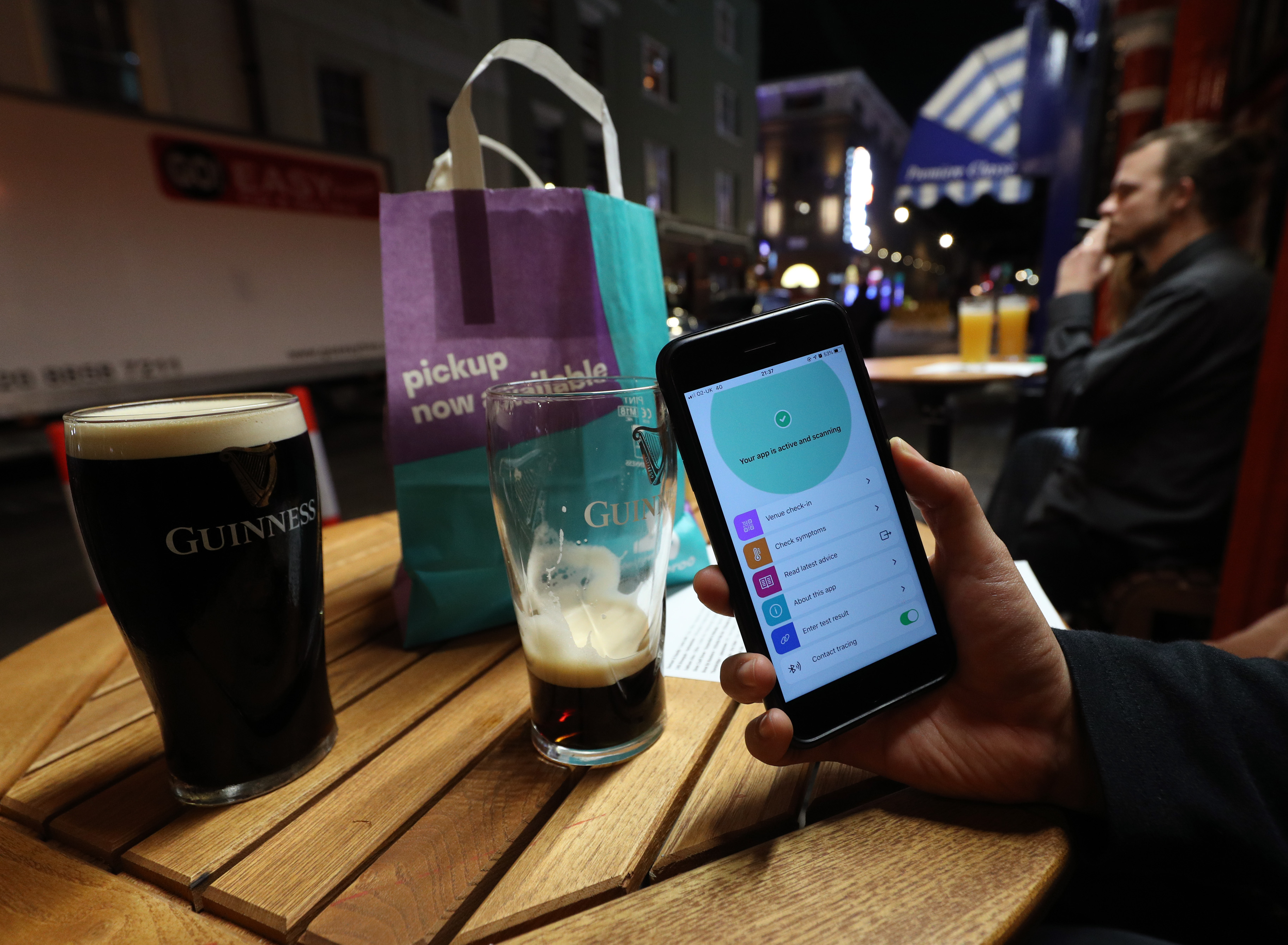The UK’s covid app made a serious difference during the winter surge
That's a big deal for exposure notifications, which have had a tough time proving how useful they are.

The news: Researchers in the UK have calculated that its contact tracing app may have prevented around 600,000 cases of covid-19. The announcement is good news for the system—which underwent serious teething problems—and a step forward for exposure notification systems more generally.
What they found: The study, by a team of Oxford researchers, modeled the impact of 1.5 million notifications that had been sent by the UK’s NHS app between October 1 and December 31, when almost 2 million people were infected with covid-19. Their analysis showed that each person who tested positive and used the app to alert others sent out an average of 4.4 notifications; without this intervention, they projected, there would have been between 200,000 and 900,000 more cases.
The data show, as we have reported previously, that even modest use of such apps can have a significant impact: “For each 1% increase in users,” said the researchers, “we estimate the number of cases will drop by between 0.8% and 2.3%”
That’s good news for those who have been trying to understand the effectiveness of such apps, something that has been notoriously difficult to measure. Raphael Yahalom, a researcher at MIT’s Sloan School who has been studying apps like these throughout the pandemic, says that the paper “represents the most comprehensive systematic analysis to date of a large-scale deployment—and so, the most compelling evidence of efficacy.”
Why it matters: It’s difficult to study whether contact tracing apps work because privacy concerns have made analytics especially challenging, says Jenny Wanger, director of programs for Linux Foundation Public Health. Many covid apps use the Google-Apple protocol, which is a system that keeps users anonymous. That protects user privacy so well that it’s difficult for central health authorities or researchers to track back information or see patterns in the alerts.
To get around this, the UK study looked at how many notifications got sent and compared the data with what scientists know about the behavior of the virus itself. Without knowing exactly who received the messages, the researchers were able to model whether the app was making a difference.
That approach won’t work in every country with a covid app, though. Among other things, it requires some sort of centralized health system to track notifications. The US, for example, lacks a national, central database and instead uses a patchwork of state apps, although that could change with the Biden administration.
Still, now that this technology is almost a year old, we could see more studies on whether digital contact tracing is working. Yahalom says there are more efforts under way, and a Swiss study was released earlier in February (although he cautions that it’s hard to compare these studies directly).
Why we need to know: Exposure notification apps have had a tough time. In countries where they are voluntary, apps have struggled with low uptake and privacy concerns. But knowing that they’re effective may encourage some people to decide to download and use one. More data could lead to more investment and more downloads, says Wanger, whose work supports the development and analysis of exposure notification apps. And more users means more broken chains of transmission.
This story is part of the Pandemic Technology Project, supported by the Rockefeller Foundation.
Deep Dive
Policy
Is there anything more fascinating than a hidden world?
Some hidden worlds--whether in space, deep in the ocean, or in the form of waves or microbes--remain stubbornly unseen. Here's how technology is being used to reveal them.
What Luddites can teach us about resisting an automated future
Opposing technology isn’t antithetical to progress.
A brief, weird history of brainwashing
L. Ron Hubbard, Operation Midnight Climax, and stochastic terrorism—the race for mind control changed America forever.
Africa’s push to regulate AI starts now
AI is expanding across the continent and new policies are taking shape. But poor digital infrastructure and regulatory bottlenecks could slow adoption.
Stay connected
Get the latest updates from
MIT Technology Review
Discover special offers, top stories, upcoming events, and more.